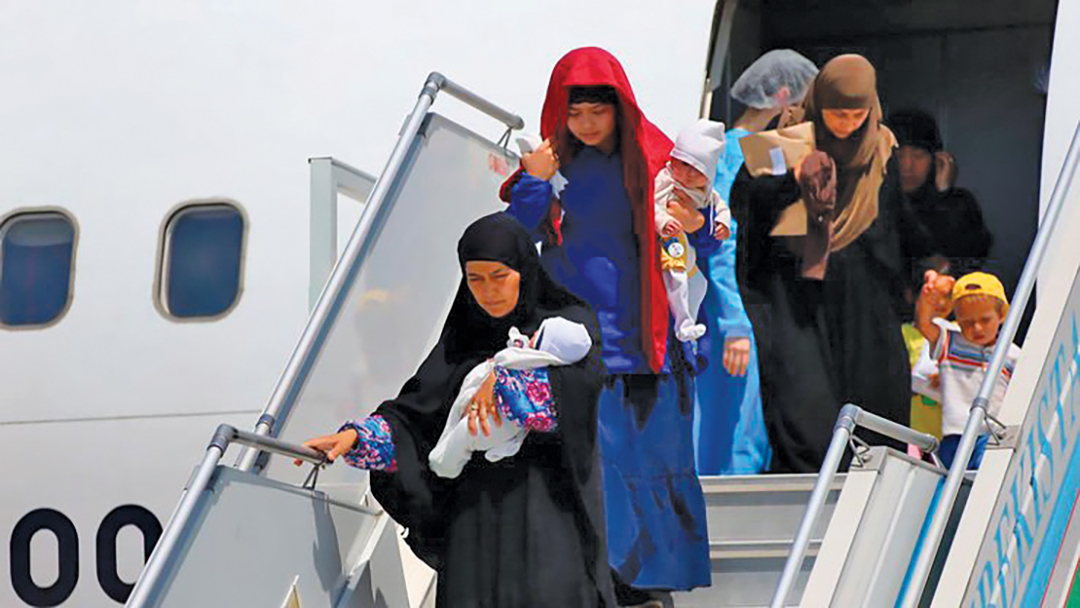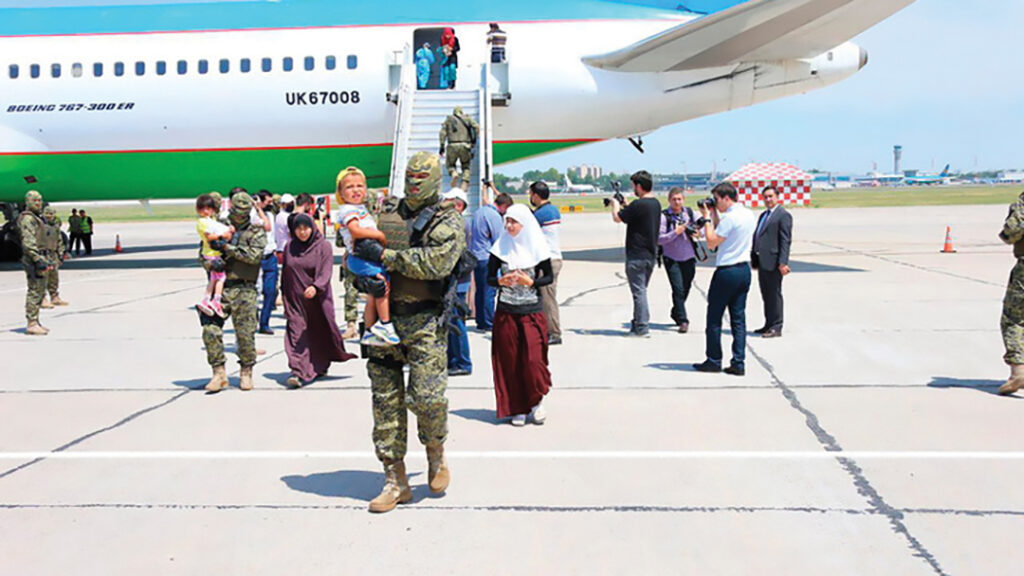COL. UMED AHMEDOV, former SENIOR NATIONAL REPRESENTATIVE OF THE MINISTRY OF DEFENSE OF THE REPUBLIC OF UZBEKISTAN AT U.S. CENTRAL COMMAND
Between 2017 and 2021, the government of Uzbekistan, with participation of international organizations, repatriated 531 citizens previously involved in the criminal activities of international terrorist organizations in Syria, Iraq and Afghanistan.
These humanitarian operations, known collectively as Mehr (compassion), retrieved mainly women and children manipulated or influenced by close relatives, parents or spouses who belonged to violent extremist groups.
To rehabilitate and socially reintegrate these citizens, Uzbekistan has adopted measures bringing together representatives of government and civic organizations. This effort has drawn participation from the ministries of health, public and preschool education, justice, and labor and employment. Outside organizations such as the Women’s Committee of Uzbekistan are also involved. These groups help ensure the returnees are employed, enrolled in schools and treated for physical or psychological ailments.
Upon arrival in Uzbekistan, the repatriated women and children undergo rehabilitation and social adaptation in several stages, organized jointly with UNICEF.

In the first stage, the country validates or reissues passports and birth certificates for returnees. In some cases, such as children born in Iraq or Syria, these documents must be created from scratch. The women and children also attend cultural and educational events such as concerts and competitions and receive moral and psychological guidance. Children are tested to ensure they are placed in the right schools at the right grade level.
The second stage provides for appointment of guardians from among the relatives of repatriated orphans or their assignment to group homes known as “houses of mercy.” To become a guardian, relatives must fill out applications attesting to their ability to care for the minors. Candidates are evaluated by the chairman of the commission on guardianship, who decides which child is placed with a particular family.
The third stage brings together repatriated citizens and their relatives as they are escorted to their new homes. Law enforcement agencies investigate any criminal cases against the returnees and release many with promises of good behavior. Orphaned children proceed to the group homes run in many cases by regional governments.
The fourth stage ensures that returnees receive further help in reintegrating into Uzbek society. The government provides housing, training and employment assistance for adult returnees and pensions for the elderly. Based on their ages, repatriated children enroll in schools or preschools. Children are assigned psychologists and teachers who provide care and tutoring. Women can receive financial assistance if they are disabled or raising children by themselves. Mentors from neighborhood associations keep track of each repatriated citizen, and official imams and religious scholars counsel families about the fallacy of extremist and terrorist ideas.
Based on the hundreds of Uzbeks who have passed through the system, United States and United Nations officials cited Uzbekistan as a model for repatriation of ISIS women and children from the Middle East, according to the Voice of America. The officials encouraged other countries to duplicate these deradicalization efforts to reduce the risk of terrorist resurgence.
“They have done a very credible, excellent job,” U.S. Ambassador to Uzbekistan Daniel Rosenblum told the Voice of America.
That appreciation was echoed by U.N. Resident Coordinator in Uzbekistan Helena Fraser, who commended Uzbekistan for setting an example for dozens of other countries whose citizens joined extremist groups in Syria.

